I was recently contacted by a lovely young woman I met at the
APW book signing event. She wrote me asking for advice about photography, about being a business-owner, about the DC photography scene. While I feel hugely unqualified to give such advice, she said she didn't know any other professionals, so I was happy to share whatever I've learned on this crazy journey.
And other things on the internet happened recently, too. One alarming thought that popped up was that all of this was somehow
easy - that it's easy to become a great photographer, that it's easy to make people look good, that it's easy to take pictures that clients will love - heck, that it's easy to find clients and work with them and run a business. I'm not another one of those people devoting entire posts to bashing anyone, but I thought it was worthwhile musing a bit on what I think makes a great photographer. There's nothing you can
buy that is going to make you a great photographer.
1. Practice. Yeah, good, old-fashioned doing it again and again and again and again. I've told my
Mexico story about a million times in about a million client meetings (I should blog about that, right?) but here's the super-abbreviated version: Something sparked in me in Mexico - one minute I was just a regular girl, the next I was a photographer. And it's sorta been like that since. But just because my fingers started tingling for a camera doesn't mean I was a
good photographer. That came much, much later.
The most dramatic change in my photography happened in the year I did my 365 photo project. I heard about this crazy idea on the internet of taking a photo each and every day for a whole year. You can see my set
here but I have to warn you that these photos are
terrible. But they
improved. Jan. 1 I was rubbish. Dec. 31 I was slightly less than rubbish. I started to
understand the medium.
2. Study. (All of these things are boring, right? And tedious, right? And
time-consuming? Well, that's because it takes a great deal of hard work to become competent in any trade or skillset.) At first, I studied everything. I bought books from the thrift store on basic camera operations. I took introductory photo classes. I read countless internet articles on the "exposure triangle" and composition and gear and lighting etc. etc. etc.
To take the skill from "something I do" to "something I know" (and we get right back to "do" later), you have to study. Maybe you could get there on your own with enough time, but
educating yourself about the medium will speed your progress.
What works for me is focusing on one thing at a time. The very first thing you should learn is how to put your camera on manual and fully understanding the relationship between ISO, aperture and shutter speed. Everything builds on this foundation. Only when you can work your camera in manual can you really put it in aperture mode with
purpose. Even a rudimentary understanding of f-stops will allow you to make good guesses to get close to your desired exposure (which is not necessarily what the camera thinks the exposure is).
Be smarter than your camera. Modern technology has made cameras really good at guessing how a scene should look. But they're not always right and they're very rarely
intentional or
artistic. A camera is a tool, use it as such.
So I learned that. And then I learned something else. And then I learned something else. And then maybe I went back to the first thing because I realized I didn't actually know it back-and-forth. My mind can only concentrate on one lesson at a time. So at this stage in the game, I focus on posing, or light-painting, or using geometry or symmetry. I can only have one main goal in mind. Once I get it, though, it becomes part of my knowledge bank. I can draw on posing or light-painting or geometry while I focus on off-camera lighting, for example.
Study like a madman. Study like you never did in school because you didn't care. If you don't care enough to study it, you won't care enough to do it. (Okay, here's another anecdote. I thought I wanted to write poetry when I was younger. I wrote a lot, but I never read. A professor said "If you want to be good at writing poetry, you have to love reading poetry." I didn't love reading poetry - I hated it. Clearly, I was in the wrong field.)
3. Repeat. Really, there are no short-cuts here. Practice goes before study because you have to know what you're working with. How can you learn to make pottery if you've never felt clay between your hands? Try something out, hate it, think you suck, read up on what the hell you did wrong. Try again, hate it, try again and again and again and again until you think it's sorta okay. This is the same thing I am still doing. Study and practice, then practice and study.
Some other general advice. Look at other photographers' work. People are concerned about being unduly "influenced" by looking at other photography. Bullocks. Steal like an artist and absorb as much as you can. Blatant copying is always a no-no - draw inspiration, recreate, reenvision. How can you do that in a different setting, with one person instead of two, with flash instead of the sun? Look at what other photographers are doing and
break it down. Why is that light so dreamy? Where is it coming from? Is that window light or is it a strobe? What time of day are they shooting? Is it overcast? Ask yourself these questions as you browse the internets. Do it when you read a magazine - where are the catchlights in the model's eyes? Where are the secondary lights?
Look for photographs everywhere. Once the bug is in you, you won't be able to help it. Do yourself a favor and start early. I play a game with myself when I'm walking somewhere. I'll pick random spots and determine where I would put a bride if I had to shoot her right there. Where is the good light? Where could I put her to create an interesting composition?
Pay attention to posing. People want creative, interesting, artistic photography, sure. But they also want to look good. Don't go too far down the rabbit hole before you figure out how to take flattering photographs of your clients. A slightly boring photo where the couple looks good is always going to trump an artistic photo where the bride thinks she looks fat.
Be humble. Experiment. Don't be afraid - take the safe shot and then do something crazy. Try film, Polaroids, old cameras, camera phones, pinholes. Ask questions. Go to photo meet-ups. Shoot with someone else - analyze how they did things differently than you, what worked and what didn't.
Train your eye.
Now don't get all huffy. I'm not saying I'm a great photographer. I'm good at what I do. I think if I really thought I was "great", I wouldn't be learning and reaching and continuing at the same pace. I imagine I'd reach some kind of plateau where I think I'm great and that's that. But I do know the way there - the way to being great - and it's
practice, study and
repeat.
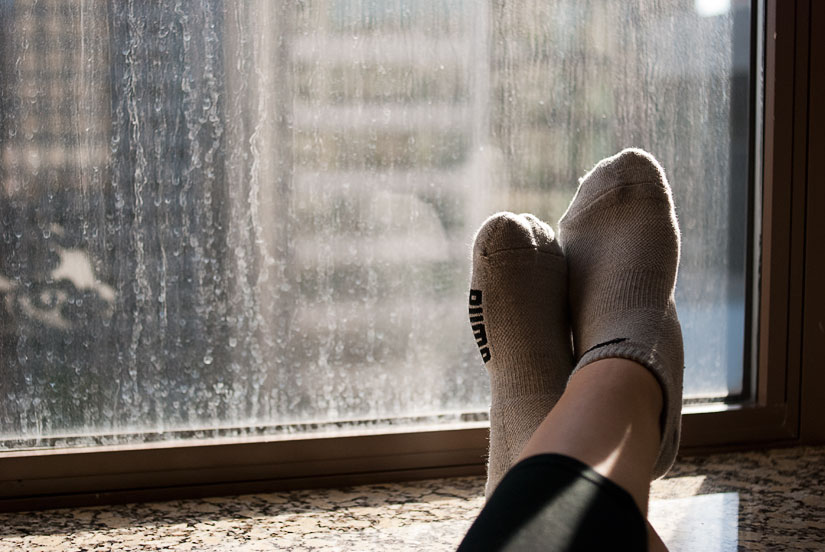 I'm going to have the most beautiful wedding to show you tomorrow, but wanted to elaborate on a scene from yesterday. I had my feet up on the window sill in my hotel room here in Seattle (editing said wedding) and noticed the lovely light.
This is my absolute favorite kind of light to shoot in: backlighting. Now if you're not a photographer, you probably think it's kinda silly to have a favorite light. But I bet your photographer friends (and mine) have a favorite light, too.
What I love about backlighting is that it creates this wonderful bright rim around the subject (here, my feet) that makes it stand out from the background. This is especially effective if the subject is in front of something dark, like in the first photo below of Sarah and Scott.
The other brilliant thing about backlighting is that it lights up any little bits of things floating around in the air near the subject, or other elements between the subject and the dark background. You can see this in the photo at right, where you can see every water stain on the dirty window and in the photo below of Sarah and Scott, with the much more attractive little bits of pollen lighting up around them. I love this effect and think it is singularly beautiful.
Shooting backlit can be a little more difficult than using other types of light because most cameras will not want to expose for the subject, but for the background, particularly if you are including a lot of background in the image. In this instance, it is critical to switch to manual mode to get the proper exposure for the subject. Once you have the correct exposure, then you can shoot away without worrying if the camera is guessing correctly - this actually makes it much, much easier to properly engage your subjects!
I'm going to have the most beautiful wedding to show you tomorrow, but wanted to elaborate on a scene from yesterday. I had my feet up on the window sill in my hotel room here in Seattle (editing said wedding) and noticed the lovely light.
This is my absolute favorite kind of light to shoot in: backlighting. Now if you're not a photographer, you probably think it's kinda silly to have a favorite light. But I bet your photographer friends (and mine) have a favorite light, too.
What I love about backlighting is that it creates this wonderful bright rim around the subject (here, my feet) that makes it stand out from the background. This is especially effective if the subject is in front of something dark, like in the first photo below of Sarah and Scott.
The other brilliant thing about backlighting is that it lights up any little bits of things floating around in the air near the subject, or other elements between the subject and the dark background. You can see this in the photo at right, where you can see every water stain on the dirty window and in the photo below of Sarah and Scott, with the much more attractive little bits of pollen lighting up around them. I love this effect and think it is singularly beautiful.
Shooting backlit can be a little more difficult than using other types of light because most cameras will not want to expose for the subject, but for the background, particularly if you are including a lot of background in the image. In this instance, it is critical to switch to manual mode to get the proper exposure for the subject. Once you have the correct exposure, then you can shoot away without worrying if the camera is guessing correctly - this actually makes it much, much easier to properly engage your subjects!
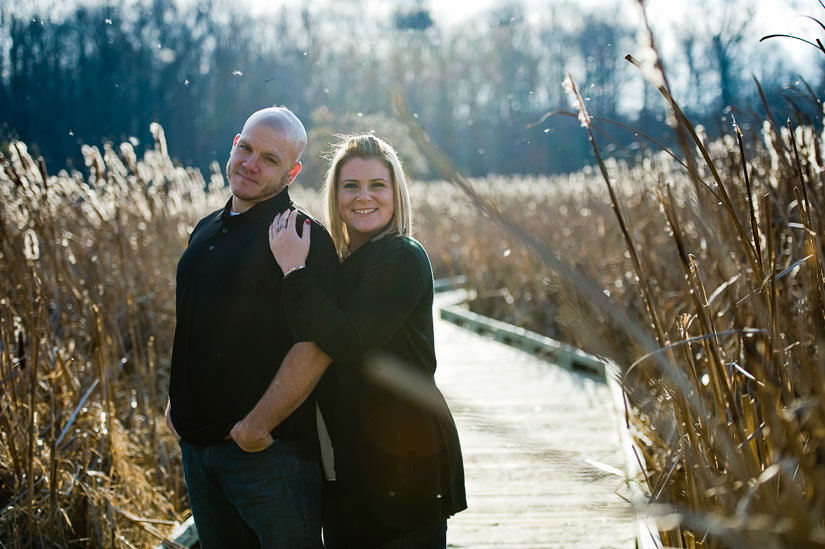 A couple more examples. From my shoot at Temptation Horse Farm:
A couple more examples. From my shoot at Temptation Horse Farm:
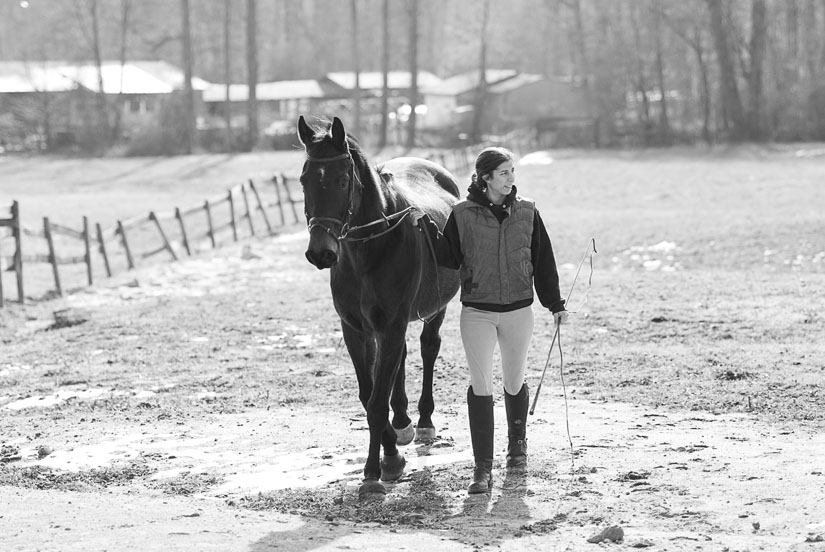 From Lisa and Scott's wedding:
From Lisa and Scott's wedding:
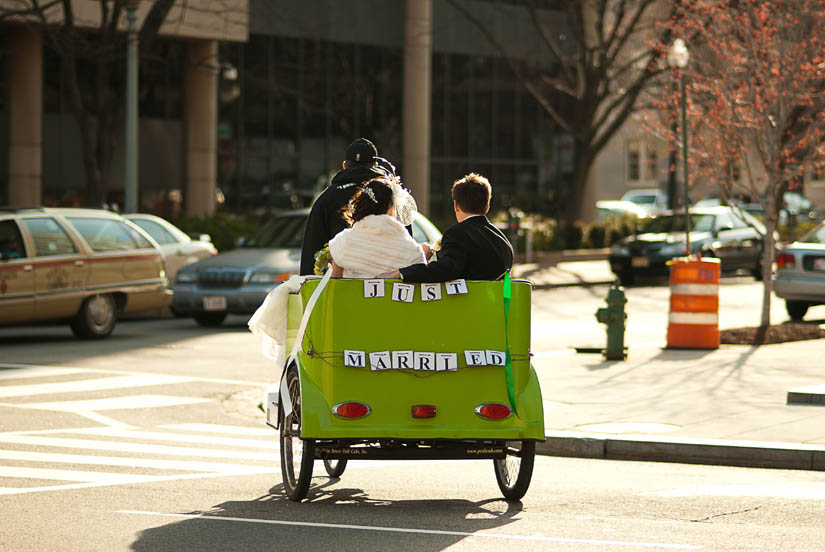 From Aimee & Richard's engagement session at Dumbarton Oaks:
From Aimee & Richard's engagement session at Dumbarton Oaks:
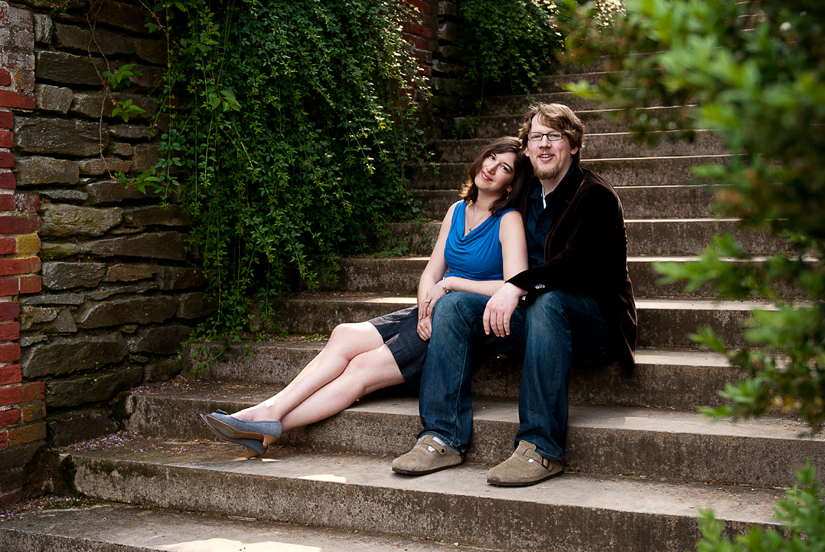 I hope this was useful to someone, if not, I hope you liked looking at my backlit photos! They are normally some of my favorites from any session.
I hope this was useful to someone, if not, I hope you liked looking at my backlit photos! They are normally some of my favorites from any session.
 It was serendipitous that my boss happened to have a spare 35mm lens lying around and liked me enough to pass it along. This lens, a little over a 50mm on my cropped sensor camera (don't worry if that doesn't make sense) quickly became my go-to lens. To this day, it is on my camera at least 75% of the time. I carry my camera with me everywhere I go, and this is almost always the lens on board. Weddings and portrait sessions require a different approach and therefore different lenses, but that's a whole 'nother (and more complex) story.
The remaining 47 or so are almost all taken with my 35mm:
It was serendipitous that my boss happened to have a spare 35mm lens lying around and liked me enough to pass it along. This lens, a little over a 50mm on my cropped sensor camera (don't worry if that doesn't make sense) quickly became my go-to lens. To this day, it is on my camera at least 75% of the time. I carry my camera with me everywhere I go, and this is almost always the lens on board. Weddings and portrait sessions require a different approach and therefore different lenses, but that's a whole 'nother (and more complex) story.
The remaining 47 or so are almost all taken with my 35mm:
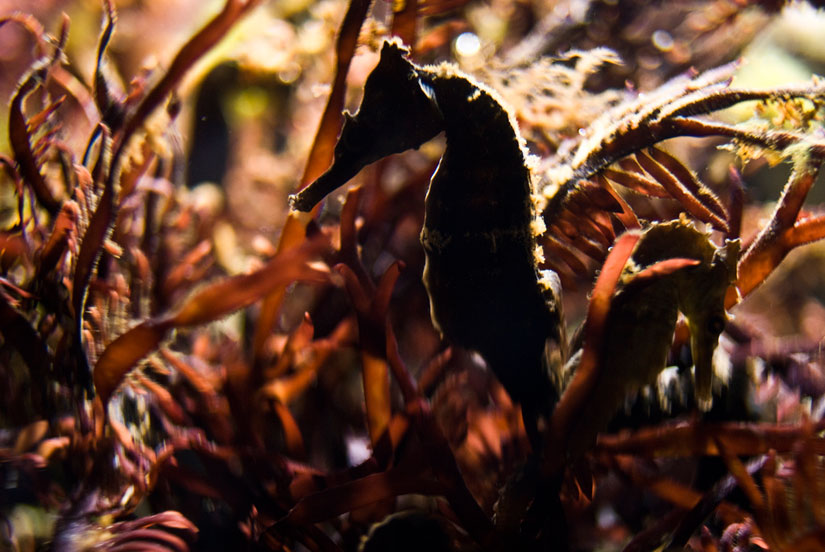 For now, my advice to anyone getting into photography or looking to dramatically improve, is to put one fixed-length lens on your camera and keep it on. Go somewhere to shoot and don't bring any other lenses. Yes, you'll miss some stuff that you'd need to have a wide-angle for, and other stuff that's too far away to be captured well with a 50mm. Repeat this ad nauseum. When you know exactly what the frame is going to look like before you lift the camera to your face, you're on the right track. And if you don't have a fixed-length lens? Switch that sucker all the way to 18 and keep it there. Bam.
For now, my advice to anyone getting into photography or looking to dramatically improve, is to put one fixed-length lens on your camera and keep it on. Go somewhere to shoot and don't bring any other lenses. Yes, you'll miss some stuff that you'd need to have a wide-angle for, and other stuff that's too far away to be captured well with a 50mm. Repeat this ad nauseum. When you know exactly what the frame is going to look like before you lift the camera to your face, you're on the right track. And if you don't have a fixed-length lens? Switch that sucker all the way to 18 and keep it there. Bam.